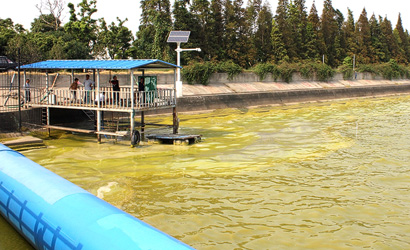Rationale and Goals

Water is essential for human life, but its quality is threatened by multiple sources of pollution. The Sino-German research project SIGN will contribute towards improving water quality in the Taihu region close to Shanghai, China. A powerful consortium of research facilities, companies and concerned stakeholders was built in order to successfully manage the challenging research tasks of the SIGN project. From 2015 to 2018 the project consortium will work on both - the lake water itself serving as water resource and the drinking water for the megacities Wuxi and Suzhou.























